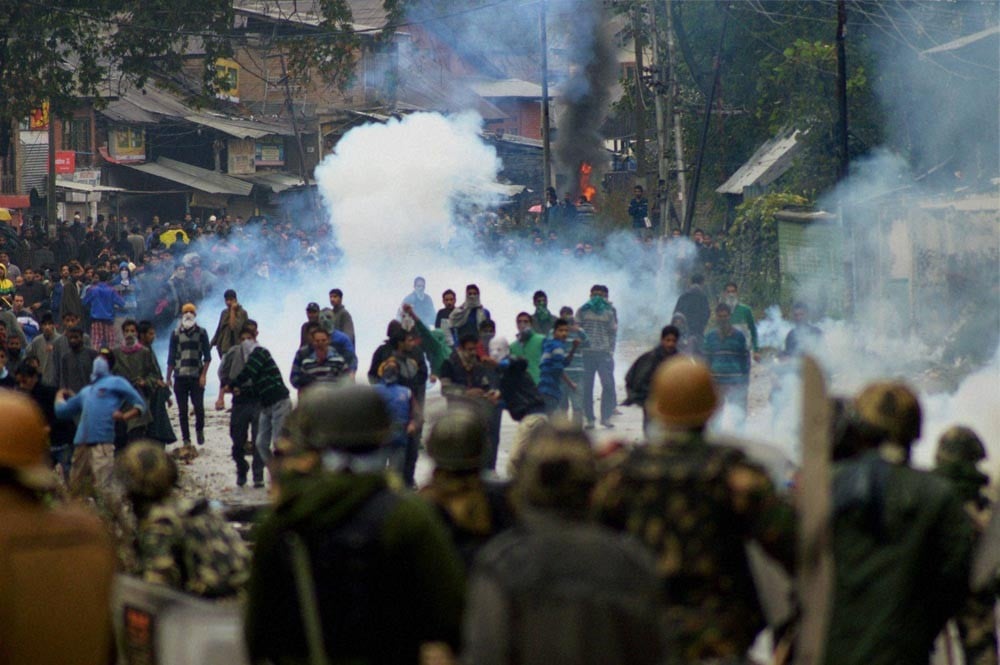
Perhaps the only viable option to the peaceful settlement of Kashmir is the holding of plebiscite under the UN’s auspices

On multiple occasions, India and Pakistan went to war. The last time the two nuclear armed neighbours fought a mini war in Kargil was back in 1999. The Kargil episode was different than the wars fought in 1965 and 1971.
By 1998, both India and Pakistan were nuclear powers. At danger were the lives of more than a billion people who inhabited the two uneasy neighbours. Yet Kargil war was different in other respect too. The flareup did not deteriorate into an all out war because, unlike in 1965 and 1971, the presence of nuclear weapons restrained the two states to risk a major confrontation. No different is the Pakistan-India present conflict.
Post Uri incident, whereby India lost 18 soldiers, the relations between Islamabad and Delhi sharply deteriorated once again. In all probability, we may not see a major confrontation thanks to nuclear capabilities of the two states. Although history is definitely on the side of nuclear deterrence as a successful means to prevent major war among nuclear powers, no one can say for sure that war will always not happen because of nuclear deterrence. In other words, there is every possibility of a nuclear war between India and Pakistan because nuclear deterrence may fail. So, the question is how to stop Pakistan and India from going to war?
In international relations, the question of why wars happen has intrigued scholars from the discipline. Structural theorists, such as Kenneth Waltz and John J. Mearsheimer contend that anarchy or the absence of any entity above states to regulate their relations authoritatively is the structural reason for the occurrences of war among states, especially great powers. The biggest casualty of anarchy, they believe, is the survival of states. According to Mearsheimer, every state has some military offense for other states and no state can be completely sure of the intentions of the other state no matter how benign they may be. As a result states fear each other. Therefore, states are left with no option other than ensuring their survival by maximising their share of power.
The pertinent question that arises is that if anarchy is the reason of war between states then why is it so that only occasionally do states go to war against one another? For example, within the 45-year-Cold War period, probably the only time that the US and former Soviet Union were on the edge of a nuclear abyss was the Cuban Missile Crisis back in October 1962. Put in a different way, anarchy stays the course even today but still there is no war between enemies and rivals, say the US and China. What this tells us is that the essence of anarchy in itself cannot account for the occurrence of a war until it is accompanied by other factors, which may change with time and context. Against the backdrop of Cuban Missile Crisis, it was the American threat to a Soviet satellite, Cuba, in the western hemisphere and the Soviet installation of nuclear missiles in the US’s backyard that led to the near possibility of a nuclear confrontation. The same logic applies to India-Pakistan relations.
There is no authority above India and Pakistan to regulate their relations authoritatively. As a result, each state is a perceived security threat to the other. Despite the fact that anarchy is a constant factor even then the danger of the two nuclear weapons states going to war appear only occasionally. The simple truth is that anarchy is not a necessary condition of war until and unless it interacts with other sources of troubles.
Within the context of Indo-Pak relations, the issue of Kashmir is the incessant factor that afflicts relations between the two nuclear powers. History stands witness. As early as October 1948, the two post colonial nascent states went to war on Kashmir only to fight a full scale war in 1965 and the mini war in Kargil in 1999.
Similarly, Kashmir was the reason behind Pakistan and India dangerous buildup of military forces on border in 2002. The unsettled nature of Kashmir has rightly been dubbed as a "nuclear flashpoint" between the two states. Before answering the question of how can the two states possibly resolve the issue of Kashmir, the more important question is what holds the two back from finding a solution to the dispute?
In Kashmir, the two states, over decades, invested too much strategically, ideologically, politically and emotionally that it is very difficult for them to budge on their respective positions. None of the two wants to appear susceptible to the dictates of other.
Pakistan cannot afford letting Kashmir go; so can’t India afford to let Kashmir free only to open up the Pandora’s Box of secessionism from the Indian federation. Ruling elites in India and Pakistan need to understand each other’s position on Kashmir. There must be a neutral option, acceptable to both parties. Perhaps the only viable option to the peaceful settlement of Kashmir is the holding of plebiscite under the UN’s auspices in both the Indian and Pakistan administered Kashmir on the question of accession either to India or Pakistan or opting for independence.